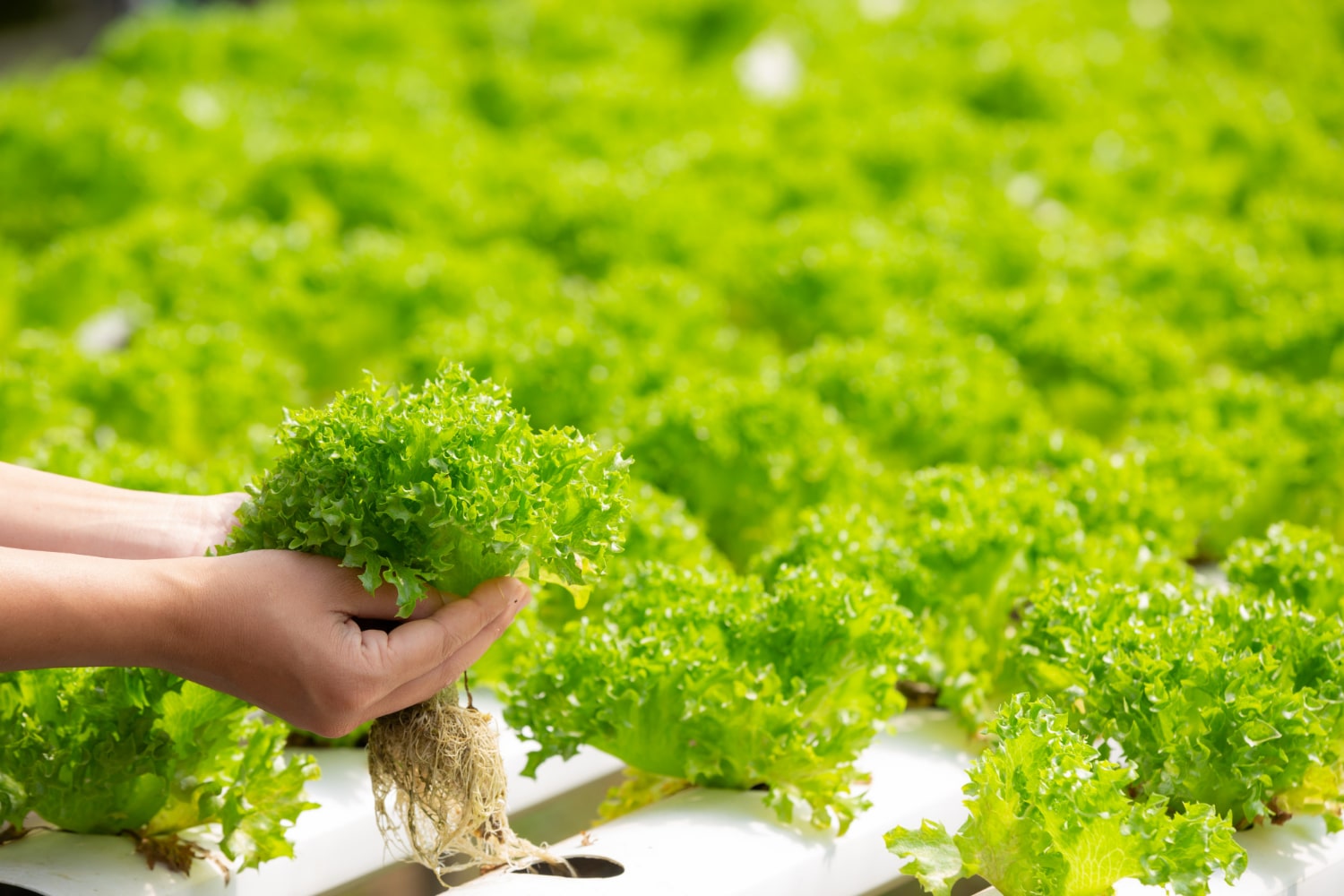
Even though most people don't think that hydroponic systems can be organic, they can be. Hydroponic growers as well as organic gardeners have the same goal to grow the best and most nutritious produce they can. But, in most cases, they use different methods. Hydroponic systems usually rely on various nutrient solutions that will provide the plant with the best growing circumstances. But the key is that these nutrients are organic and come in the form of mineral fertilisers. The organic produce, in most cases, is grown by using natural soil minerals and different organic supplements. So having a hydroponic vegetable garden that is organic and sustainable isn't impossible.
Hydroponic: Definition
These particular systems are a soilless growing media that will provide nutrients to plants in their water. This system relies on sunlight or even uses artificial lightning. Plants are being grown in a controlled system which significantly shortens the growing time. They can also be grown anywhere you can imagine. Therefore, hydroponic systems are practical for people who can't afford traditional growing methods. Growing vegetables in these conditions will result in better crop quality, and it will also reduce the ability to transfer any bacteria around your crops. Because you have to pay attention to all the required nutrients to grow your vegetables while using the hydroponic system, most of the crops will be organic.
Organic Gardening
For vegetables to be certified as organic, they need to meet very high and particular standards made by the National Organic Program. The point of the regulation is that the product is causing minimal impact on the environment, which means that there needs to be a natural supply of nutrients and eco-friendly ways of controlling diseases and pests. All the nutrients will come from microorganisms. Therefore, they will be chemical-free.
Organic Hydroponics
Even though hydroponic farming doesn't use any soil, this system uses microbial activity to produce the plant nutrients to meet all ‘certified organic’ criteria. Systems like that are only made by organic materials that have been previously approved. So they can be a nutrient solution. It is produced by something called an organic digestive system. When you are growing vegetables with this system, your vegetables will both be hydroponically grown and organic. Since there are so many rules and regulations that gardeners must follow, there is no chance that an organic vegetable can be mistaken for GMO.
Hydroponics And Sustainable Agriculture
There is nothing better than hydroponic farming that we have found to help combat climate change and make gardening a more sustainable thing. That is because it reduces the environmental damages and species that are going extinct because of overexploitation and farming. It also saves water. These crops are more profitable and are much easier to control. Because of that, it is one of the latest trends when it comes to smart farming. They are using technological tools and artificial intelligence to achieve energy. They are also researching data and getting a much greater number of crops. Vertical hydroponic farms are already found in many areas and countries where they have scarce soil and sun.
Advice For Using Hydroponics At Home
What a lot of people don't realise is that you can have this kind of garden wherever you live. It is inexpensive, and it is super simple to take care of. If you don't want to purchase a premade one, you can even make one. All you need is plastic containers that are reused, and you have to drill some holes for drainage. You will also need an aquarium pump that will be under the container. If you don't have a sunny place where you are planning to have your vertical garden, you can put them under growth lamps.
As you can see, both organic and hydroponic farms are sustainable, but when you combine both of them, you reap the most benefits while minimizing your impact on the environment. It is one of the best ways you can make a statement and reduce your carbon footprint. Also, you can eat healthy nutritious food.
Written by Alison Pearson
About the Author
Alison Pearson is an interior design student. She is a writer and designer, but her ultimate passion is design and creation. She is also a bibliophile and her favourite book is "The Sound and the Fury" by William Faulkner. Follow her on Twitter.
You may also like
Effective Natural Pest Control for Every Garden
How to Grow Your Own Vegetables Without a Garden
Gardening Tips For Beginners: Things You Need To Know Before Sowing Your First Seed
Gardening Tips: Best Ways to Maximize Your Harvest
